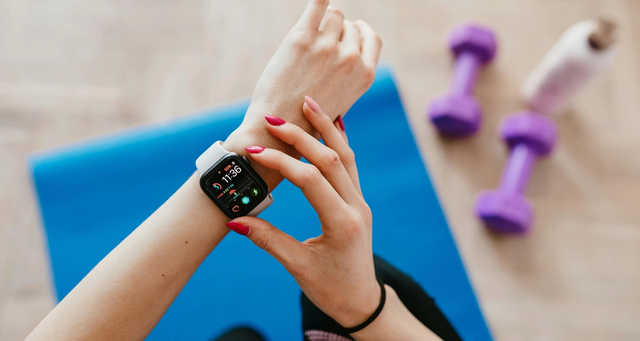
Exercise and Aging: Understanding the Benefits
Aging is an inevitable part of life, but it doesn’t mean we have to succumb to a sedentary life and let our mobility ebb into years gone by. Through exercise, we can preserve the health and well-being of our minds and bodies, leading healthy and fulfilling lives that sparkle throughout our golden years.
Aging and exercise go hand-in-hand, with the latter benefiting the former in many ways, from maintained physical health to enhanced emotional well-being. So, without further ado, let’s dive into six notable perks of exercise on aging.
6 Perks of Exercise on Aging
Exercise is a staple for people from all walks of life, helping stave off health problems and preserve mobility, but it’s especially important for aging populations. Some even say you can reverse aging through diet and exercise! Here are six perks of exercise on aging:
1. Maintaining Physical Health
As we age, our bone health and muscle mass naturally begins to deteriorate. After we turn 30, muscle mass begins to decrease by 3 to 8%, and after 60, the decline accelerates. A similar story occurs in our bones, deteriorating in composition, structure, and function as we age.
This loss of muscle and weakened bone structure can contribute to an assortment of problems, such as reduced mobility and an increased risk of fragility fractures. However, with regular exercise, we can combat this natural decline.
Regular movement helps keep muscle strength and mass, which can help preserve mobility and prevent falls. Weight-bearing exercises (as simple as walking) contribute to bone density that can reduce the risk of osteoporosis and fractures.
2. Enhancing Cardiovascular Health
Many studies showcase how exercise can improve cardiovascular health, emphasizing the importance of remaining active throughout life. By remaining physically active, you can strengthen your heart, improve your lung function, reduce coronary heart disease risk factors, and minimize heart attack risk.
These benefits are far-reaching, especially in older adults, as adults aged 65 and older are more likely to suffer from heart problems, such as cardiovascular disease. Exercising to enhance cardiovascular health can be as simple as a stroll through the neighborhood or as invigorating as a swim.
Furthermore, these activities can help regulate blood pressure, lowering the risk of hypertension, a common concern in aging populations.
3. Boosting Cognitive Function
Beyond the physical and heart-happy benefits of exercising, remaining active can also help preserve cognitive function. Various studies have linked improved cognitive function with a reduced risk of cognitive decline, including dementia, as activity can help enhance the release of neurotransmitters and growth factors that support brain health.
One study found that cognitive decline is nearly twice as common in inactive adults compared to their active comrades.
4. Mood Elevation and Stress Reduction
Exercise can work wonders in improving mood and reducing stress in all ages, including older populations. During exercise, the body releases endorphins, its natural mood lifters. This release can help improve mood, alleviating symptoms of anxiety and depression.
These same feel-good endorphins can help with stress, distracting you from daily worries and helping you feel more calm and relaxed. Furthermore, it reduces stress hormones, like cortisol, further contributing to stress-free relaxation.
5. Maintaining Healthy Weight
Regular activity can help minimize obesity-related issues by helping you maintain a healthy weight. As we age and become less mobile due to lack of activity, obesity can become a serious concern. Obesity can open the door to an array of health effects, including high blood pressure, high LDL cholesterol, type 2 diabetes, coronary heart disease, and stroke.
In older adults, obesity can intensify and accelerate age-related inflammation processes, increasing the risk of complications like heart attacks, strokes, and cancer. Luckily, by remaining active (and consuming a wholesome, healthy diet), we can minimize the risk of obesity and the problems related to it.
6. Social Connection and Emotional Well-Being
Social isolation and loss of important relationships in older ages can cause a host of emotional problems, leaving people feeling empty, depressed, and lonely. Exercise creates a perfect opening to create and foster social relationships, minimizing these concerns in older populations.
Group exercises or classes offer an excellent opportunity for social interaction, minimizing the feeling of isolation and loneliness. Furthermore, attending these classes and working towards a goal of improved mobility can provide a sense of purpose and accomplishment, further contributing to emotional well-being.
Stay Active as You Age With Svetness
Aging is an inevitable part of life, but with help from exercise, you can work toward preserving your physical, mental, and emotional well-being. Exercise is a powerful tool to enhance physical health, preserve cognitive function, and foster emotional well-being. It’s never too late to start, and the benefits are remarkable and far-reaching, contributing to a vibrant and more fulfilling life in our golden years.
If you’re ready to enjoy the benefits of exercise on aging, Svetness is here to help. Our personal trainers, located nationwide, offer exercise programs geared toward adults age 65 and older. Ready to get started? Complete our online contact form to start with a free consultation!
Start your Svetness journey today
Get a free consultation and see how our trainers can transform your wellness journey.





